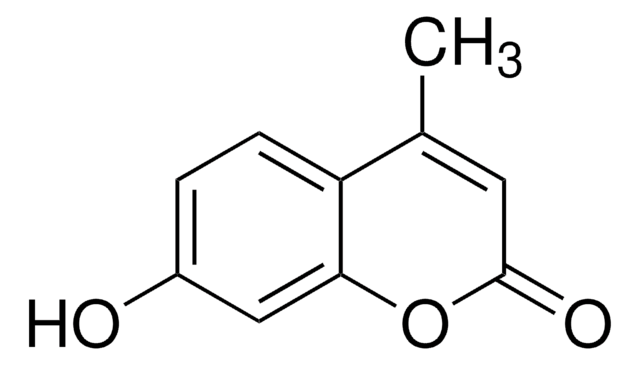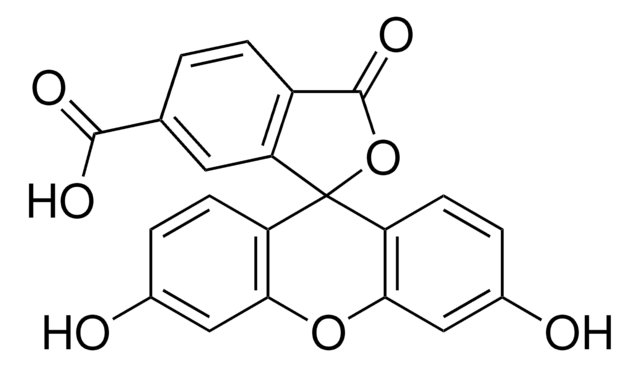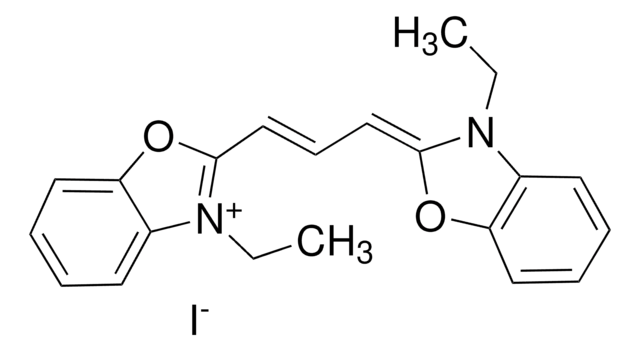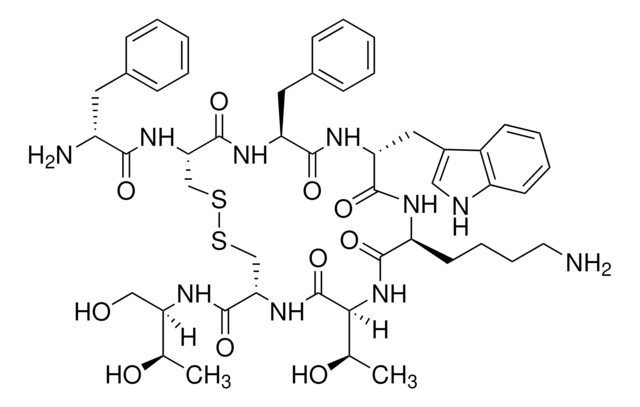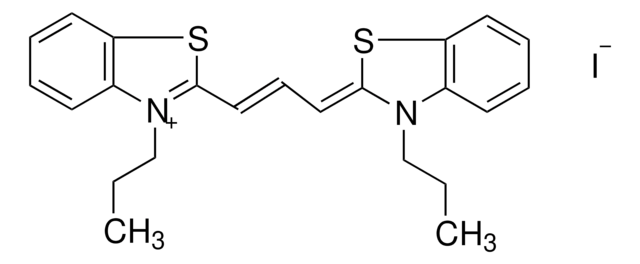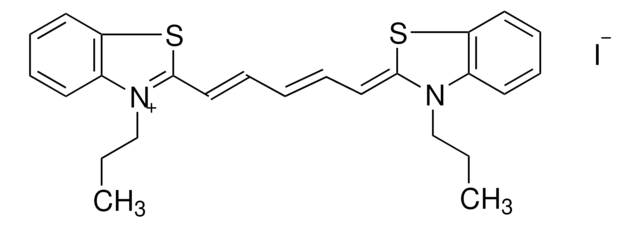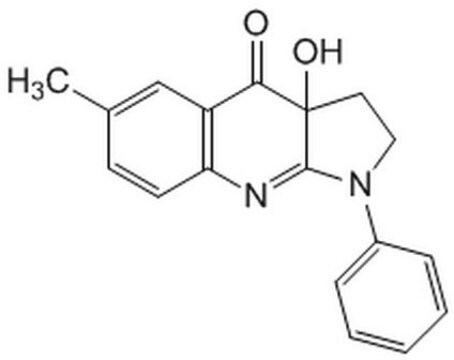D8064
4-(2-(6-(Dibutylamino)-2-naphthalenyl)ethenyl)-1-(3-sulfopropyl)pyridinium hydroxide inner salt
≥95% purity (HPLC), solid
Sinónimos:
Di-4-ANEPPS
About This Item
Productos recomendados
product name
4-(2-(6-(Dibutylamino)-2-naphthalenyl)ethenyl)-1-(3-sulfopropyl)pyridinium hydroxide inner salt, ≥95% (HPLC), solid
Nivel de calidad
Análisis
≥95% (HPLC)
formulario
solid
mol peso
480.66
color
orange to dark red
solubilidad
DMF: soluble
DMSO: soluble
ethanol: soluble
ε (coeficiente de extinción)
≥38000 at 493-499 nm in methanol
aplicaciones
diagnostic assay manufacturing
hematology
histology
temp. de almacenamiento
2-8°C
cadena SMILES
CCCCN(CCCC)c1ccc2cc(\C=C\c3cc[n+](CCCS([O-])(=O)=O)cc3)ccc2c1
InChI
1S/C28H36N2O3S/c1-3-5-17-30(18-6-4-2)28-13-12-26-22-25(10-11-27(26)23-28)9-8-24-14-19-29(20-15-24)16-7-21-34(31,32)33/h8-15,19-20,22-23H,3-7,16-18,21H2,1-2H3
Clave InChI
HAPJROQJVSPKCJ-UHFFFAOYSA-N
Categorías relacionadas
Aplicación
Acciones bioquímicas o fisiológicas
Código de clase de almacenamiento
11 - Combustible Solids
Clase de riesgo para el agua (WGK)
WGK 3
Punto de inflamabilidad (°F)
Not applicable
Punto de inflamabilidad (°C)
Not applicable
Equipo de protección personal
Eyeshields, Gloves, type N95 (US)
Elija entre una de las versiones más recientes:
¿Ya tiene este producto?
Encuentre la documentación para los productos que ha comprado recientemente en la Biblioteca de documentos.
Los clientes también vieron
Nuestro equipo de científicos tiene experiencia en todas las áreas de investigación: Ciencias de la vida, Ciencia de los materiales, Síntesis química, Cromatografía, Analítica y muchas otras.
Póngase en contacto con el Servicio técnico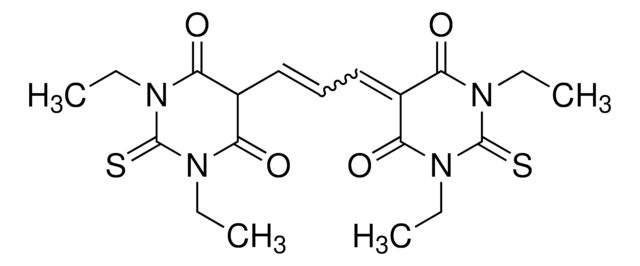
![4-(2-[6-(Dioctylamino)-2-naphthalenyl]ethenyl)-1-(3-sulfopropyl)pyridinium inner salt ≥95% (HPLC), solid](/deepweb/assets/sigmaaldrich/product/structures/276/606/9b895cb0-f3b8-42d2-bceb-a788c0bcf884/640/9b895cb0-f3b8-42d2-bceb-a788c0bcf884.png)

